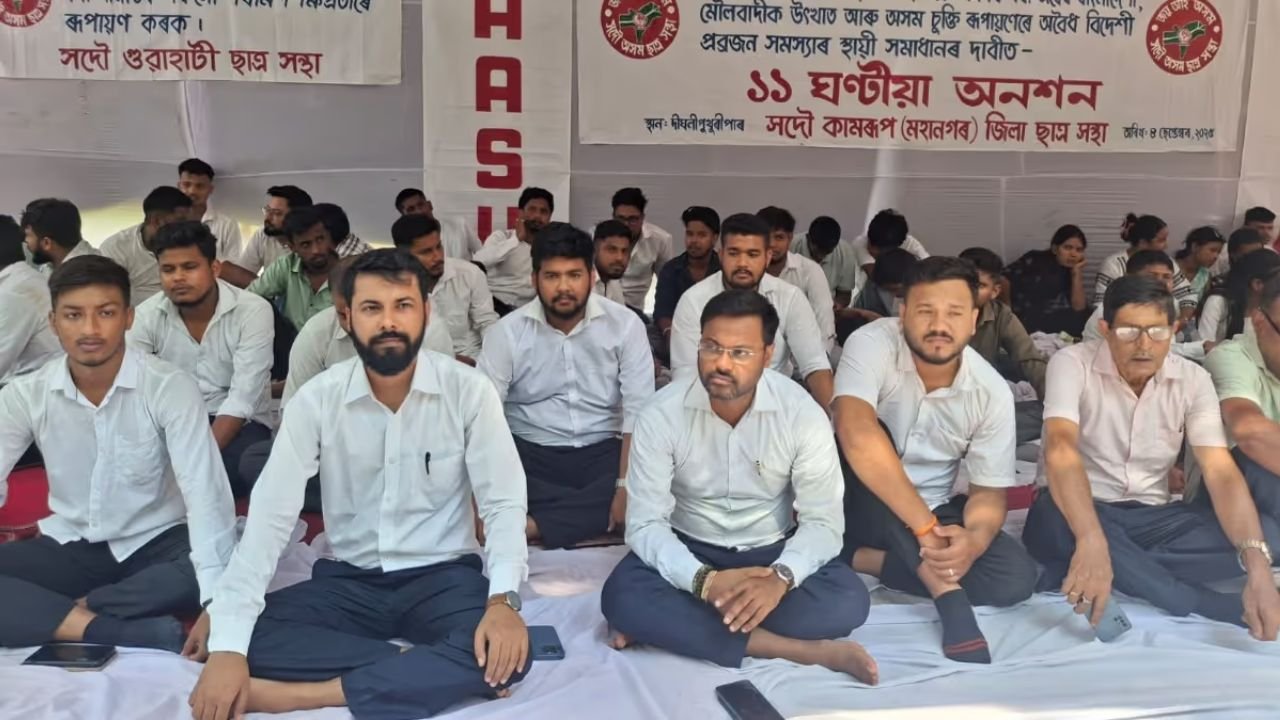Members of the All Assam Students Union (AASU) in Dibrugarh, Assam on Thursday held an 11-hour hunger strike. The main objective of the protest was to ensure strict implementation of the Assam Accord and a permanent solution to the problem of illegal migration from Bangladesh. The protest was held from 6 am to 5 pm at the AASU’s Swahid Bhawan campus, located near the District Collector’s Office. During this, the protesters raised slogans against both the state and central governments and accused them of failure to protect the rights and future of the indigenous people of Assam.
Underlined the need for Assam Accord
AASU’s Dibrugarh district president Rupjyoti Borthakur said that the hunger strike was a necessary step to highlight the gravity of the situation. He said, “This protest is to draw the attention of the government to the crisis that has arisen due to the continuous entry of illegal immigrants.” Borthakur reiterated that the Assam Accord signed in 1985 after years of agitation led by AASU is the only practical solution to the migration crisis of the state. The accord promised to identify and deport illegal immigrants who entered the state after March 24, 1971.

Strict security measures and a display of demands
The students put forth several demands in the hunger strike, including the complete removal of illegal Bangladeshis and radicals from Assam. The AASU also demanded complete sealing of the Indo-Bangladesh border and imposition of shoot-on-sight orders against infiltrators. Besides, the organisation demanded Assam to be excluded from the Citizenship Amendment Act (CAA), as they believe it is contrary to the principles of the Assam Accord.
The AASU also demanded immediate implementation of the Biplab Kumar Sharma Committee recommendations on Article 6, which provides constitutional, legislative and administrative measures for the protection of Assamese. Town unit president Tanuj Haloi warned that “if immediate action is not taken, the indigenous population of Assam will face an existential crisis.” This movement made it clear that protection of the cultural and social identity of Assam is the top priority for the students and youth and they expect quick and effective steps from the government.







